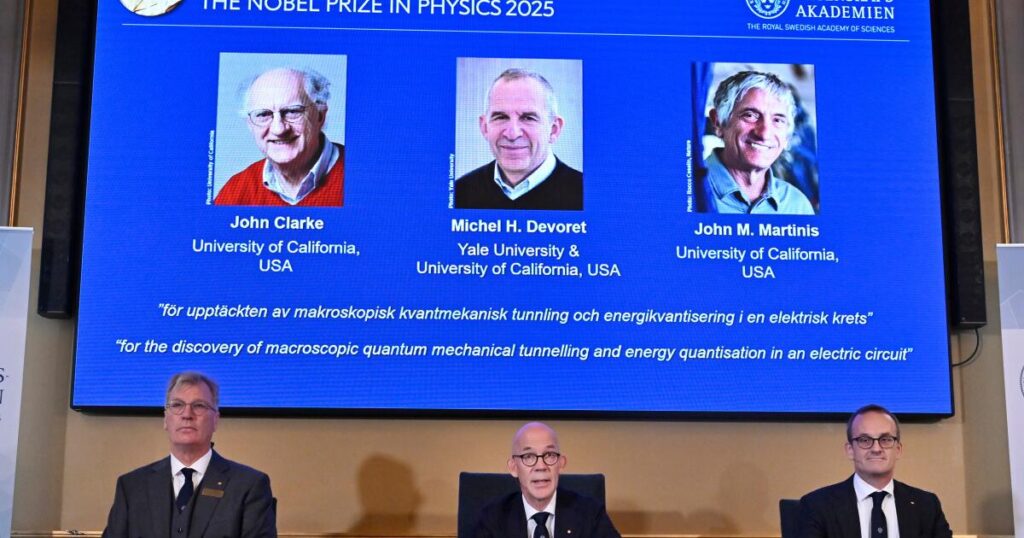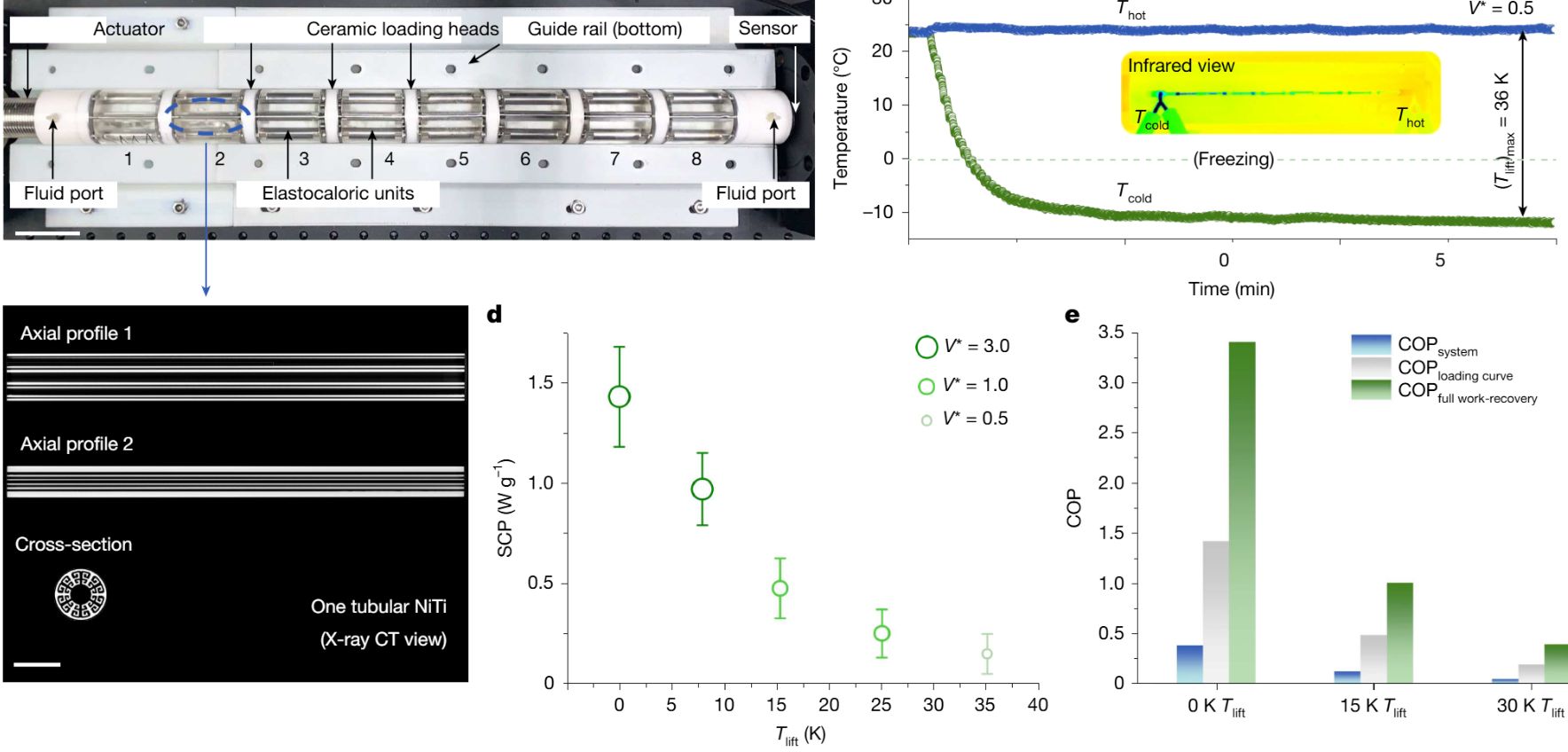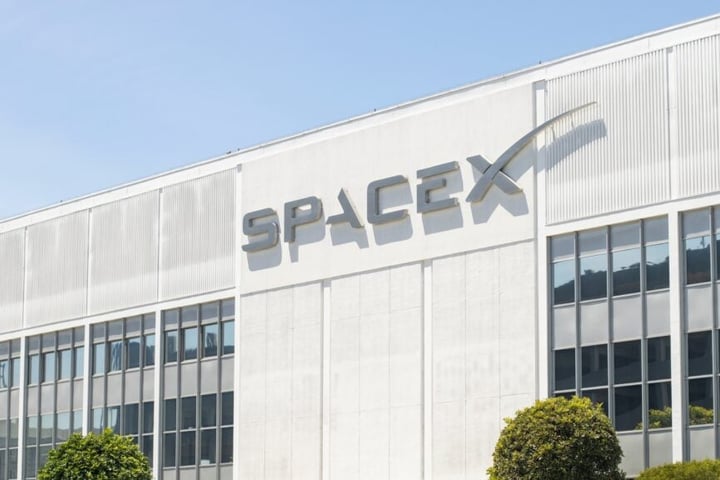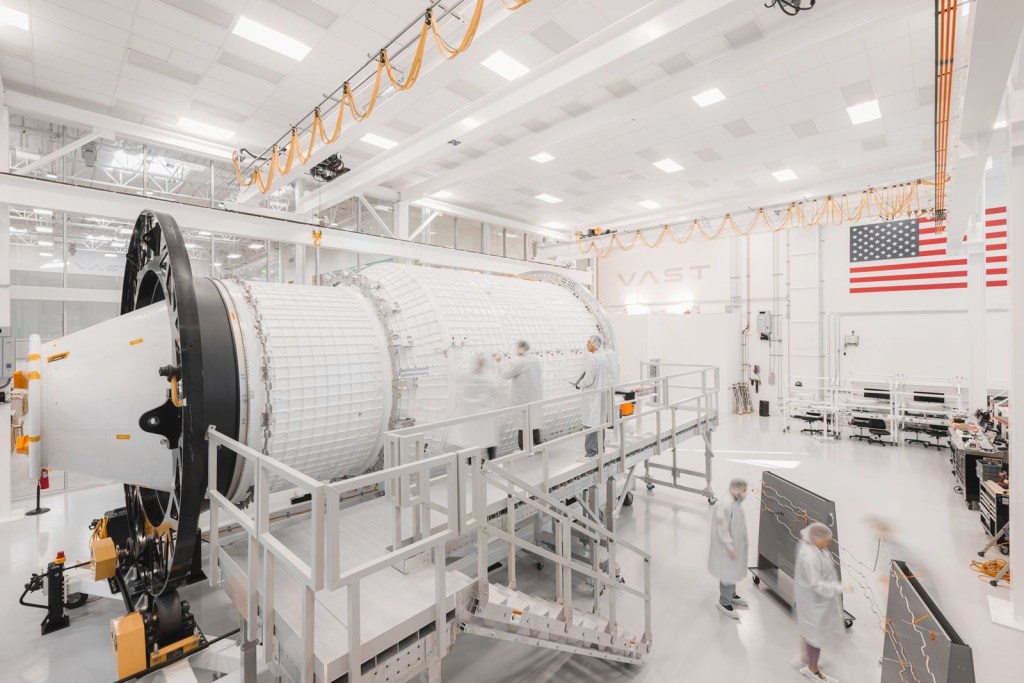
Three scientists from the University of California have been awarded the Nobel Prize in Physics for their groundbreaking research in quantum mechanics, particularly in the realm of quantum computing. John Clarke, Michel H. Devoret, and John M. Martinis were recognized for their work on quantum tunneling, a phenomenon that has significant implications for digital communications and computing. The announcement was made on October 10, 2025, during a ceremony held in Stockholm, Sweden.
Clarke, who conducted his research at the University of California, Berkeley, reflected on the practical applications of their work, noting that advancements in quantum mechanics are integral to the functionality of everyday devices. Speaking from his cellphone, he stated, “One of the underlying reasons that cellphones work is because of all this work.” Martinis, associated with the University of California, Santa Barbara, and Devoret, who is affiliated with both Yale University and the same UC campus, contributed to research that dates back to the mid-1980s.
Significance of the Research
The research conducted by Clarke, Devoret, and Martinis has opened new avenues in the field of quantum mechanics, transforming abstract theories into tangible technologies. Jonathan Bagger, CEO of the American Physical Society, emphasized how their findings bridge the gap between the imperceptible realm of subatomic particles and real-world applications. He explained that their work can potentially enhance computational power and communication efficiency.
The field of quantum mechanics has long been associated with paradoxical behaviors that challenge classical physics. It deals with phenomena where particles exist in multiple states simultaneously and can traverse barriers that seem impenetrable. Richard Fitzgerald, editor-in-chief of Physics Today, noted that the trio’s research has made these abstract concepts accessible and applicable to the visible world, providing foundational elements upon which future technologies can be built.
Future Implications
The implications of this research extend beyond quantum computing. According to Mark Pearce, a professor of astrophysics and member of the Nobel Physics Committee, the techniques developed by the Nobel laureates can lead to advancements in quantum sensors and cryptography, enhancing the sensitivity of measurements and securing data transmission. Pearce stated, “Quantum computers is one very sort of obvious use, but they can also be used for quantum sensors, to make very sensitive measurements of, for example, magnetic fields.”
Clarke acknowledged the importance of their work in laying the groundwork for future quantum computing developments, though he admitted, “Exactly at this moment where this fits in is not entirely clear to me.” While experts caution against overstating the direct impact of their research on current technologies like cellphones, they agree that the advancements made by Clarke and his colleagues have significantly improved the performance of devices such as magnetic resonance imaging (MRIs).
The Nobel Prize in Physics, awarded for the 119th time this year, carries a cash award of 11 million Swedish kronor (approximately $1.2 million) and is recognized globally for its prestigious legacy. Following the announcement of the physics laureates, other categories of the Nobel Prize will continue to be revealed, including medicine and chemistry, with the award ceremony scheduled for December 10, 2025.
Clarke expressed his astonishment upon receiving the news of the award. He shared that his daughter called him early in the morning to congratulate him, and he was overwhelmed by the flood of messages he received. “It had never occurred to me, ever, that I would win the Nobel Prize,” he remarked, calling it “the surprise of my life.” Meanwhile, Martinis was still asleep when reporters reached out, and his wife, Jean, humorously noted that they had opted for sleep over waiting up for the announcement. Devoret could not be reached for comment at the time.
This award highlights the continual relevance and utility of quantum mechanics in modern society, showcasing the discipline’s ability to surprise and innovate even after a century of exploration. As stated by Olle Eriksson, Chair of the Nobel Committee for Physics, “It is wonderful to be able to celebrate the way that century-old quantum mechanics continually offers new surprises.”







